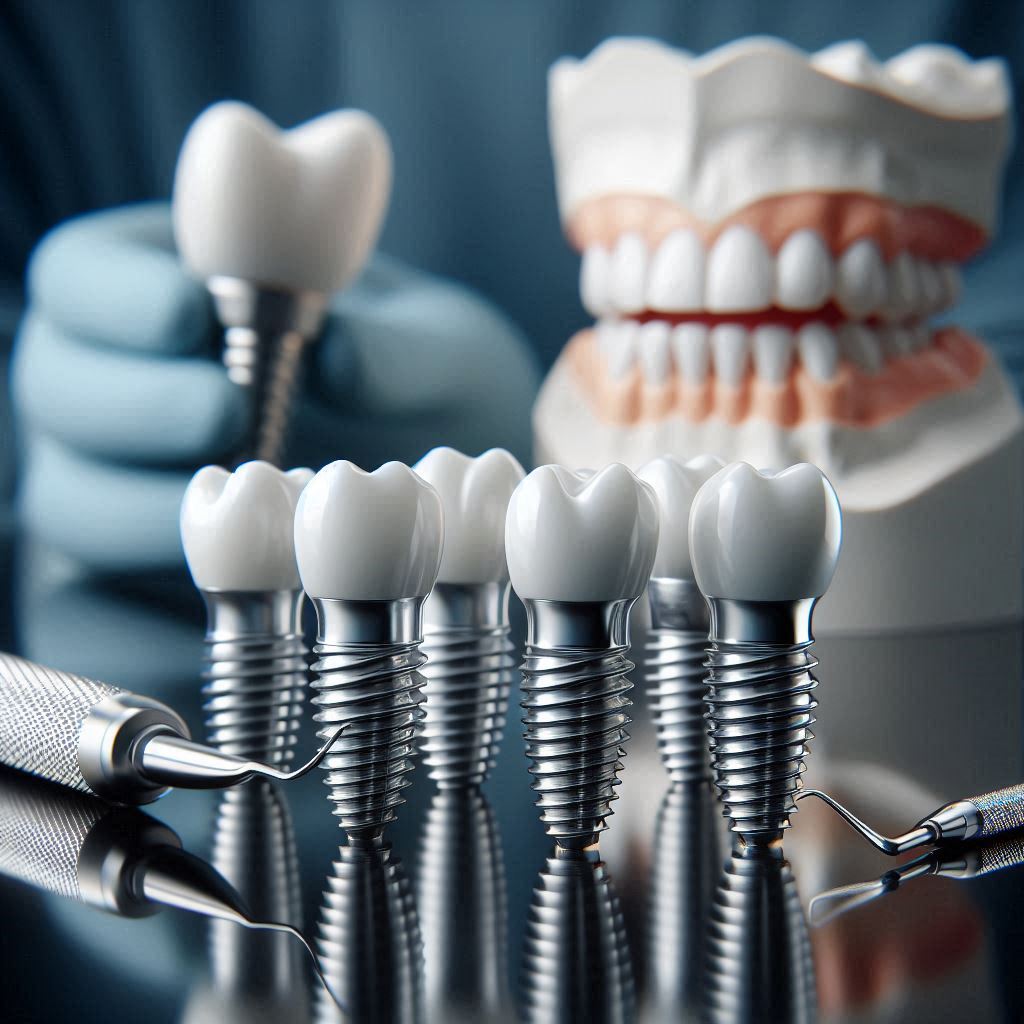Mini Dental Implants: Benefits, Costs, and Options
What Are Mini Dental Implants?
Mini dental implants (MDIs) are a modern, minimally invasive alternative to traditional dental implants. They are smaller in diameter (typically less than 3mm) and are designed to stabilize dentures or replace missing teeth in patients who may not qualify for conventional implants due to bone loss or other medical conditions.

How Do Mini Dental Implants Work?
Unlike traditional implants, which require extensive bone grafting and healing periods, mini implants can often be placed in a single visit. They consist of:
- Titanium post – Acts as an artificial tooth root.
- O-ring or ball attachment – Secures dentures or crowns in place.
- Minimal surgical intervention – No large incisions needed.
Advantages of Mini Dental Implants
- Less invasive – No need for bone grafting in most cases.
- Faster recovery – Patients can often eat within 24-48 hours.
- Cost-effective – Generally cheaper than traditional implants.
- Ideal for narrow jawbones – Suitable for patients with bone atrophy.
Who Is a Good Candidate?
- Patients with insufficient bone density for standard implants.
- Those seeking a quicker, less painful solution.
- Denture wearers looking for better stability.
Mini Dental Implants for Seniors
Seniors often struggle with loose dentures and bone loss, making traditional implants difficult. Mini implants provide an excellent solution due to their:
Benefits for Older Adults
✔ Improved comfort – No slipping or irritation from dentures.
✔ Enhanced chewing ability – Restores near-natural bite force.
✔ No lengthy healing time – Ideal for seniors with slower recovery rates.
Considerations for Elderly Patients
- Bone density – Mini implants work even with moderate bone loss.
- Overall health – Conditions like diabetes may affect healing.
- Maintenance – Regular dental check-ups are still necessary.
Case Study: Mini Implants vs. Dentures
| Feature | Mini Implants | Traditional Dentures |
|---|---|---|
| Stability | High | Low (can slip) |
| Bone Preservation | Yes | No (accelerates bone loss) |
| Maintenance | Easy (brush like natural teeth) | Requires adhesives, soaking |
| Cost Over Time | One-time investment | Frequent adjustments/replacements |
Mini Implant Straumann: A Trusted Brand
Straumann is a leading name in dental implants, known for high-quality materials and precision engineering. Their mini implants offer:
Key Features of Straumann Mini Implants
- Roxolid® material – Stronger than pure titanium, allowing for smaller yet durable implants.
- SLActive® surface – Promotes faster osseointegration (bone fusion).
- Proven success rates – Over 95% long-term success in clinical studies.
Why Choose Straumann?
- Swiss precision – Meticulously engineered for optimal fit.
- Global reputation – Trusted by dentists worldwide.
- Versatility – Suitable for single-tooth replacements and full-arch support.
Mini Dental Implants Cost: Factors and Comparisons
The cost of mini implants varies based on several factors:
Price Breakdown
- Per implant cost: 500–500–1,500 (vs. 1,500–1,500–3,000 for traditional implants).
- Full-arch stabilization: 3,000–3,000–10,000 (for 4-6 implants).
What Affects the Cost?
- Number of implants needed – More teeth = higher cost.
- Dentist’s expertise – Specialists may charge more.
- Geographic location – Urban areas tend to be pricier.
Insurance & Financing Options
- Some dental plans cover part of the cost.
- Payment plans and medical credit options (e.g., CareCredit) are available.
Conclusion
Mini dental implants offer a cost-effective, minimally invasive solution for missing teeth, especially for seniors and those with bone loss. Brands like Straumann provide reliable options with high success rates. While costs vary, the long-term benefits often outweigh traditional dentures or standard implants.
FAQs
1. How long do mini dental implants last?
With proper care, they can last 10-20 years or longer.
2. Are mini implants as strong as traditional implants?
They are slightly less robust but still provide excellent stability for dentures and small replacements.
3. Is the procedure painful?
Most patients report minimal discomfort, often managed with local anesthesia.
4. Can smokers get mini implants?
Yes, but smoking can slow healing and increase failure risks.
5. How soon can I eat after getting mini implants?
Many patients can eat soft foods within 24 hours.
Additional Resources
- American Academy of Implant Dentistry
- Straumann Official Site
- National Institute of Dental and Craniofacial Research


